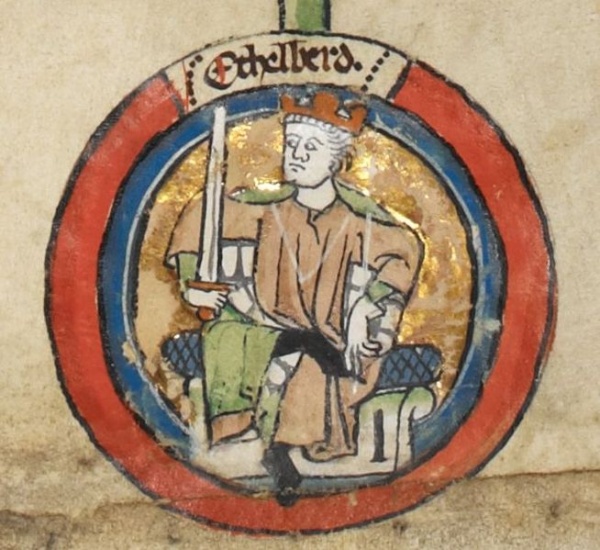
Aethelberht (or Ethelbert) was the third son of King Aethelwulf of Wessex by his first wife Osburh. We know very little about his early life, but we do know that when his father went on a pilgrimage to Rome in AD 855 Aethelberht was appointed subking of Kent, while his elder brother Aethelbald reigned in Wessex.
He briefly handed Kent back to his father when his brother Aethelbald usurped the Wessex throne. When Aethelbald died childless in 860 the throne of Wessex passed to Aethelberht, and the two halves of the kingdom were united. Aethelberht was crowned at Kingston-upon-Thames, as were his brother and father before him. The place-name comes from the Old English Cyning and tun, meaning 'the king's manor', and was the earliest known royal borough.
Few of Aethelbert's deeds are recorded, but we know his reign was plagued by raiding Vikings. Forces under the influence of Ragnar Lodbrok and his son Ivar 'The Boneless' Ragnarsson were particularly troublesome to the southern kingdoms. In 864, Ragnar Lodbrok's forces settled themselves on the Isle of Thanet and wintered there, with the reluctant acceptance of the Wessex authorities.
In 865 Ivar invaded, reaching Winchester and burning the city. Aethelberht rallied his forces and drove the Vikings back. Curiously, despite all these troubles with the Vikings, the Anglo-Saxon Chronicle describes Aethelberht's reign as a time of peace and harmony.
During Aethelberht's reign, all Saxon territory, including Sussex, Essex, and Kent, was merged into the kingdom of Wessex, placing the South under one rule. Unlike his predecessors, Aethelberht did not put a family member on the throne of Kent as a subking, but rather ruled the entire territory of Wessex himself.
This meant that virtually all of southern England was one unified kingdom. Aethelberht seems to have gathered together an assembly of both West Saxon and Kentish representatives to witness his charters, another sign of how he pulled together the disparate parts of southern England into one body.
Aethelbert died in 865 and was buried beside his brother Aethelbald at Sherborne Abbey in Dorset. The throne passed to his younger brother Aethelred, rather than to Aethelberht's children. It was in this year that York was conquered and settled by the Vikings, creating the germ of the Danelaw, the Danish sphere of influence which eventually covered most of modern England and rivalled Wessex.
